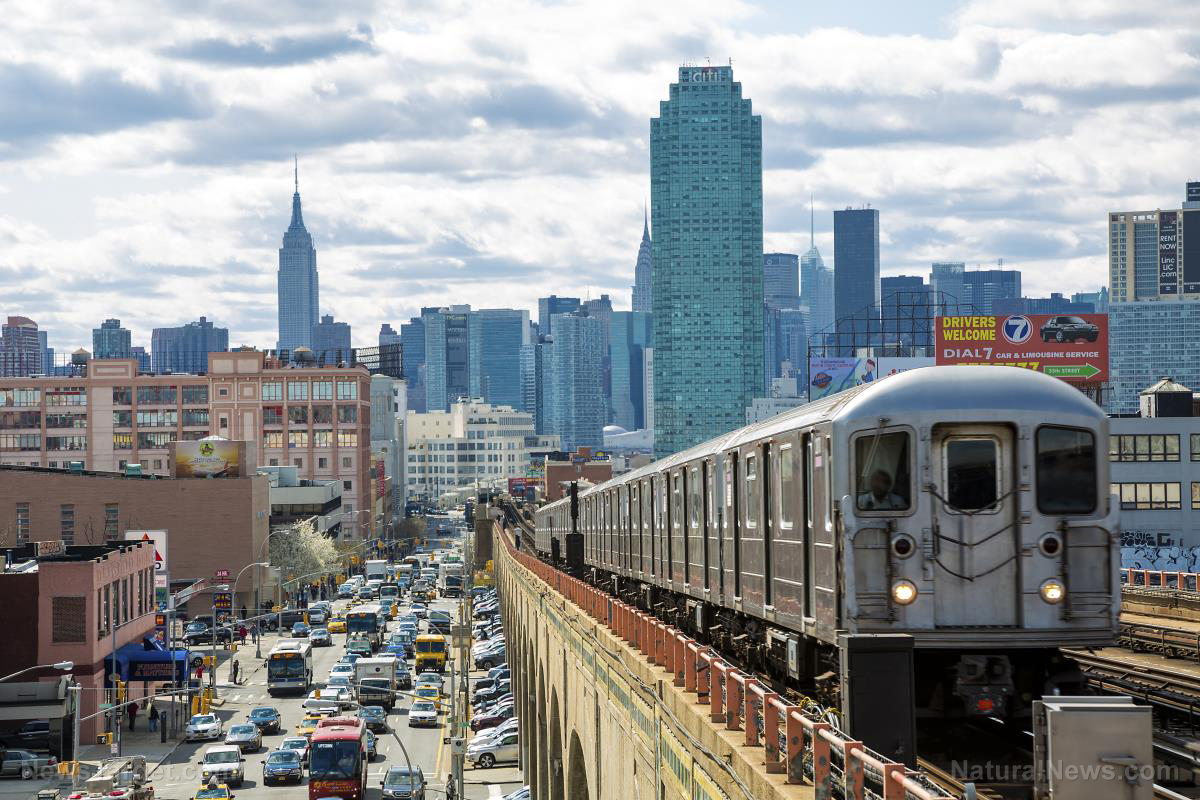With each passing day it becomes more apparent that there is a massive political divide in our country – perhaps one that is irreconcilable. Only time will tell.
But the divide is not along the typical lines, per se. While there are huge ideological differences between liberals and conservatives, the schism is also being defined by geographical factors. As The Week notes, our political chasm isn’t “the elites vs. populists,” it’s more like city dwellers vs. rural folk.
Damon Linker of This Week writes:
Each of those dichotomies captures something about our present moment, but none of them gets at the fundamentals — the sociological core of what we’re all living through, which is a growing socio-cultural chasm pitting the city and the countryside against each other.
He points to what he described as “an important essay” that was recently published in the Washington Post. In this “essay,” Will Wilkinson accused President Donald J. Trump of “demonizing” cities – denser populations where his Democratic opponent, Hillary Clinton, did much better. Wilkinson noted that Trump, however, did much better in other areas: Rural communities, the suburbs, small cities, exurbs and everywhere else. (RELATED: The world still doesn’t understand Donald Trump)
Wilkerson also listed some statistics: In the nation’s largest counties (500,000 people or more), the voting trend between 2004-2016 has been increasingly Democratic, while voting trends in smaller and rural counties have overwhelmingly tilted against Democrats.
And he also noted that most of the country’s GDP is generated from big cities, while also featuring a “more diverse” population that is more highly educated and…yada, yada.
The overarching theme to the Post report was that American cities are great – better than rural and suburban living – because they are run by Democrats and because most residents vote for Democrats.
As for Linker, his essay essentially pointed out that, ever since large numbers of people began migrating to and living in large cities, they generally have had different sensibilities than people who live in less densely-populated areas. That makes good sense, given that lifestyles vary greatly in urban and suburban/rural environments.
Linker contrasts the differences thusly:
Cities tend to be more optimistic and thus politically liberal or progressive. Rural areas, by contrast, are more pessimistic, or at least marked by doubts that change will yield improvements; hence the penchant for conservative or reactionary (at times right-wing populist) politics among voters in less densely populated places.
Well, “right-wing populist” label aside, what he’s really saying is that in cities, every need and desire is taken care of. Generally speaking, no one wants for anything. Jobs, food, clothing, housing, etc.
No one really has to learn how to fend for themselves or defend themselves. In fact, urban environments are very tightly controlled.
And while people who live in rural areas also have homes, supermarkets and technology, they have much more opportunity to learn how to be at least somewhat self-sufficient, because they need to.
They cut and split their own wood, carry guns for protection, shovel or tractor off their own driveways when it snows, hunt and grow some of their own food, learn some carpentry and home-repair skills, and so on.
City life can be surreal and artificial, cut off from the realities of life that others have no choice but to deal with every day. They are realists, in other words. (RELATED: Globalist Freak Out: New Trump EO To Favor American Workers, Businesses)
So maybe the real political divide between urban dwellers and those who live in less-dense areas – between urban Democrats like Clinton and rural “populists” like Trump – is that the former group lives in an alternate universe of their own making, while the latter lives in the real one.
Despite Clinton’s one-state majority (California), it was obvious most of the rest of the country is in the realist camp.
J.D. Heyes is a senior writer for NaturalNews.com and NewsTarget.com, as well as editor of The National Sentinel.
Sources:


